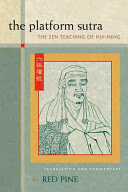Dhr. Seven and Amber Larson, CC Liu, Wisdom Quarterly; Wikipedia edit raga
 |
| "Greed" lust as lobha in "Mondo Amore" (Williams/laluzdejesus.com) |
 |
| Craving? |
Young Buddhist Lisa Simpson fails to comprehend wanting stuff. While craving (tanha) is a source of disappointment (dukkha), it is typical of living beings, particularly beings like us living in a Sense Sphere (kama loka) world. Not ALL wanting is unskillful. The wish or desire, for example, for enlightenment (bodhi), complete-liberation (nirvana), wisdom (paññā), or compassion (karuna) is wholesome. Such a wish leads one to strive and eventually find them, even if one must let go even of that beneficial-wish rather than grasping at it to actually attain it. Letting go too soon is a big mistake. In the Parable of the Raft, one fashions a floating device for "crossing over" from enslavement to freedom. The time to let go is once meditation is something one looks forward to and the goal is at hand. Until then, keep doing it until you want to.
GREED (Pali lobha or raga, Tibetan 'dod chags) is usually translated as "attachment," "passion," "lust," or "desire." But this is far too kind. It actually refers to craving, clinging, grasping, or hankering.
It is craving things within the three spheres of existence, which
produces immediate frustration and eventual disappointment.
We crave for what is lasting, pleasurable, and personal in worlds that are radically impermanent, unsatisfactory, and impersonal
Indian words have a broad range of meaning, and this is true of lobha, which runs the gamut from bias or preference to agonizing lust and hoarding behavior. It is easy to see how hoarding and being unable to let go is harmful, but it is almost impossible for an ordinary person to perceive how the very arising of a preference sets one up for disappointment and dissatisfaction.*
Greed is identified as a factor in the following contexts:
- The Three Poisons in Mahayana
- The Three Unwholesome Roots in Theravada
- The six root defilements in Mahayana Abhidharma
- The 14 unwholesome mental factors in Theravada Abhidharma.
 |
| I lust you. - I love you. |
The Theravada commentarial text the Path of Purification (XIV, 162), which is analogous to the Path of Freedom preserved by Mahayana sources (although likely simply an early draft by the very same author), gives the following definition of "greed" (lobha):
...[G]reed has the characteristic of grasping an object like a monkey
trap [a device where a monkey sticks its hand in a hole to get salt but can't get it out because of its grasped fist, which it never thinks to let go of even as it is captured by approaching hunters]. Its function is sticking, like flesh put on a hot grill. It is
manifested as not letting go, like the dye of lamp-soot. Its proximate
cause is seeing enjoyment [but not danger] in things that lead to bondage. Swelling with
the current of craving, it should be regarded as sweeping (beings) with it
to states of loss, just as a swift-flowing river sweeps to the great ocean.
Lust, lust, lust
 |
| I'm just saying, Tone it down. I was once young, too. - Mom, shaddup. You don't even know!!! |
"Why is lust talked about so much in religion? We have to have desire to survive." It is not that lust is the only problem we face on the road to freedom and happiness. Most of us think lust is happiness, or a desperate emptiness that gives us something to fill, which feels good doing.
The Buddha talked a great deal about sensuality, and sex is promoted to the rank of poster child for the class of sense pleasures. But "greed" includes them all. What is usually translated as sexual misconduct (kamesu micchacara) actually, more broadly, refers to kāma or sensual misconduct.
 |
| Go on, take it; it makes me feel like a man. - OMG, my mom warned me about this!!! |
What is sensual in this sense? Everything related to the five senses is sensual as is abuse of the sixth sense thinking about again and again enjoying the other five: (1) sights, (2) sounds, (3) tactile sensations [sex would be mostly here but can, of course, encompass all of the senses], (4) tastes, (5) fragrances, and (6) thoughts (or mind/heart as a sense that perceives or stands in for the other senses or takes in its own unique objects not accessible to the other five).
- Most people think we only have five senses, but we have far more than that. The Buddha talked about six, but that is not a limit, just a handy convention. This is true of other numbers in Buddhism: If one looks carefully, the Five Aggregates of Clinging are not limited to five; those five groupings are pedagogical and can be extended to as many groupings or heaps as one wishes to define. More heaps will not change the fact that there is no being behind them experiencing the process; there is only the process. What are our other senses? According to Vsauce they include, proprioception or kinesthesia, balance, acceleration, temperature, pain reception, time lapse, pulmonary stretch, peripheral chemo reception, distension, esophageal reception, pharynx mucosal reception... If we were, or become, sea mammals we'll gain echolocation (which some humans already enjoy), thermal reception and/or broadened light reception to see in the dark, and so on, and if and when we become devas we will gain refined senses and psychic faculties, and so on, which some people and hybrids (like some Chinese children) already possess. What do chimeras possess?

 |
| What is "sexual misconduct" anyway? |
As ordinary living beings, even as good Buddhists, we will enjoy and delight in the world (whether it be this one or the many superior worlds above it). In moderation and harming no one, this is fine. Lisa, it's okay! In the Sigalovada Sutra ("Advice to Householders," DN 31) the Buddha advises young Sigala the householder to make use of money earned by partitioning it into four parts: one to enjoy, one to pay expenses, one to restock shelves/promote one's livelihood, and one to save for times of need. This is enlightened self-interest: Enjoy now, and make sure there is something to enjoy in the future.
But in ultimate terms, this will never do. When one wishes to transcend the world (cyclical wandering through birth, death, rebirth, redeath, misery unutterable, and the uncountable lives already lived in worlds of staggering diversity, one must overcome bondage. One must break free of ALL "suffering" (disappointment, dissatisfaction, woe, ill, misery, tragedy, lack of fulfillment, loss, crying, pain, unhappiness...). That means putting away the toys for a minute, so to speak. One cannot attain enlightenment in the thick of one's mental defilements, defilements of the heart (broadly speaking, one's greed, hate/fear, delusion in their various manifestations).
 |
| The Buddha taught us to see what he saw. |
One can, however, enjoy sensual pleasures after stream entry, the first stage of enlightenment. Having uprooted the main bonds and weakened others ensures that one will reach full enlightenment and final nirvana within seven lives. Even a once-returner can enjoy all these things and do so without grossly harming others. A non-returner can look forward to rebirth in the Pure Abodes, exclusive enlightened worlds where life is long and things are good yet the beings strive for final knowledge and liberation from rebirth. The Buddha spoke of these rarefied worlds, which should never be confounded with ordinary conceptions of heaven (sagga). They likely led to the devotional extremes of Pure Land Buddhism, a prominent bhakti tradition in Mahayana Buddhism which is an awful lot like the Brahminical conception of the World of Brahma in Hinduism.


























































































































































































































































